Sabina Dervišević, a student of the School of Political Sciences at Nezavisni University in Banja Luka, is an adviser to the vice-president of the Federation of Bosnia and Herzegovina (FBiH) Svetozar Pudarić on liaison with non-governmental organizations.
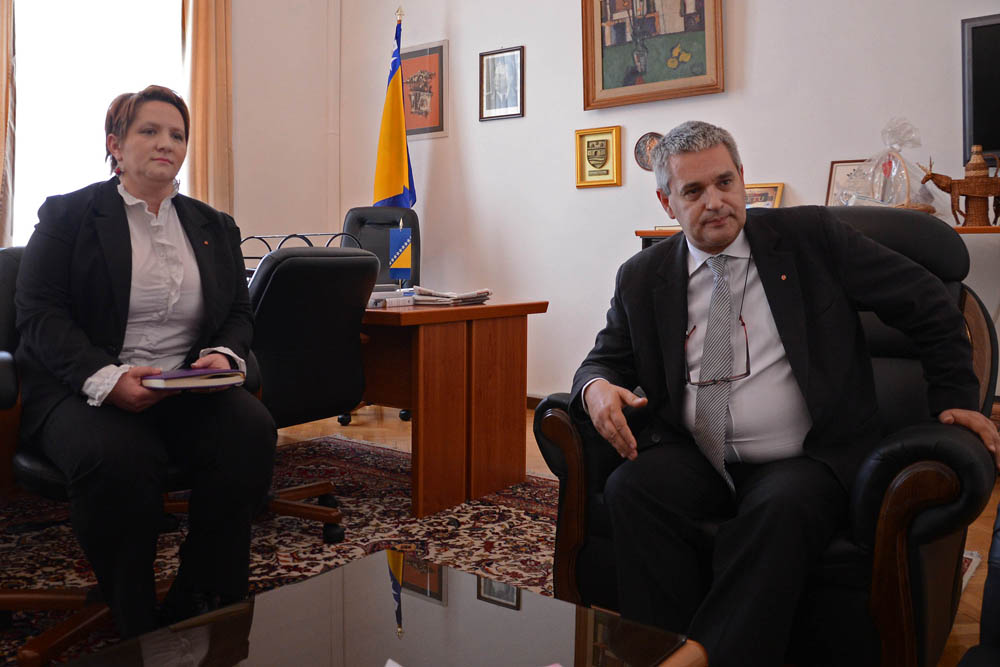
Pudarić failed the requirements of the Federation of Bosnia and Herzegovina (FBiH) Law on Civil Service in appointing her. The law says that candidates for an advisory office should have an academic degree and five years experience.
At the end of February 2013, 157 advisors including Dervišević, were on the payroll of the offices of the presidents, ministers and their deputies in the institutions of BiH, FBiH and Republika Srpska (RS).
Reporters from the Center for Investigative Reporting in Sarajevo (CIN) have calculated that state and entity-level government institutions are spending 3.7 million KM on advisors annually with a typical salary of around 2,000 KM.
Advisors at the state and FBiH level get money for living, commuting and accommodation expenses and have access to discretionary funds and other privileges.
Advisors are accountable only to the officials who appoint them. Thus, instead of experts, these posts are often filled with politicians between jobs, officeholders’ party colleagues or kin.
By appointing advisors, the officeholders add more people to an already cumbersome bureaucracy. Some examples from the RS show that civil servants can perform most of the work for which advisors get hired.
At the state and FBiH government level, all officeholders have advisors, some of them up to six, while no advisor currently works at the four RS government’s ministries.
“Aids to the minister and secretaries together with the minister are managing to efficiently realize all goals, plans and everyday tasks, so currently there is no need for filling up advisory posts,” reads a response sent from the RS Ministry of Government and Local Self-government.
New Advisers with the help of a Rulebook
Pudarić introduced the post of advisor for liaison with non-governmental organizations at the Office of the FBiH Vice-president. “My whole term up, to now and in the future, will be committed to the needs of citizens,” says Pudarić.
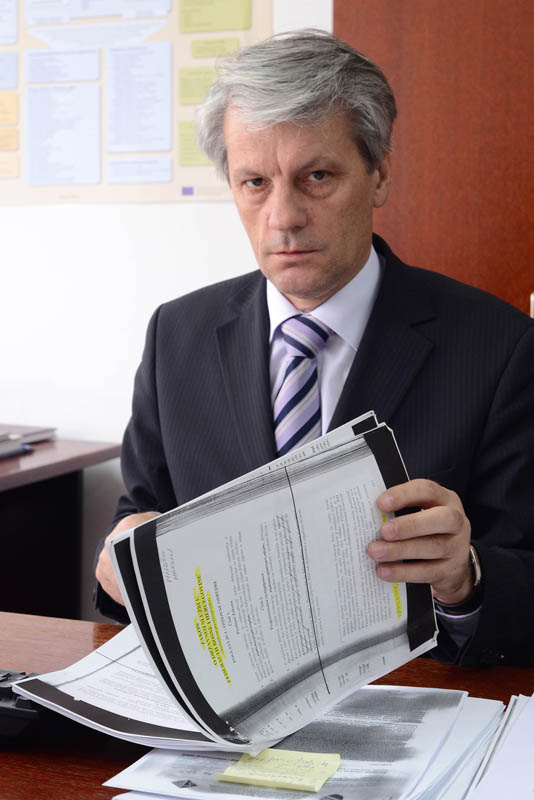
The 36-year old Dervišević joined the Social Democratic Party (SDP) in 1999. Since then, she says, Pudarić and she were “a part of the same team, of the same family.” Between 2004 and April 2012, she was a secretary at SDP’s Una Sana charter.
A chief duty of this advisory post is to coordinate with non-governmental organizations, according to the rulebook signed off by Pudarić that paved the way for Dervišević’s hiring.
The representatives of five non-governmental organizations in BiH: Transparency International (TI), The Centers of Civic Initiatives (CCI), The Center for Representation of Civic Interests, the Association for Democratic Initiatives and Sarajevo Open Center told CIN that they did not know Dervišević, nor they had any collaboration with her. Moreover, no senior person from these organizations knew that Pudarić had an advisor for non-government sector.
Pudarić said that his office supports organizations that care for children with special needs, public kitchens and those on welfare.
In order for a rulebook on the internal structure of FBiH institutions to come into effect, it has to be vetted by the Public Administration Institute within the FBiH Ministry of Justice and The FBiH Legislative Office. The Institute’s director Enver Išerić said that this rulebook has not been checked.
Pudarić says that he did not ask the government’s opinion on the rulebook because he thought that he did not need to do this as he is its most senior official.
Out of the school and into the advisory office
According to the state Law on Civil Service, in contrast to the FBiH law, advisors do not have to have a university degree. Yet, some rulebooks call for academic degrees. Depending on the state institution, rulebooks call for work experience of up to three years. The rulebooks mainly do not define what field advisors cover, but only the number of them.
Dijana Tabori was initiated into legal matters at the Office of a member of BiH Presidency Željko Komšić. According to her resume, she graduated from law school in 2006. In the following year she became Komšić’s legal advisor and she stayed in this office until the beginning of 2011, when she was appointed a minister of justice and administration of the Sarajevo Canton. She had to step down the following year because her government lost the parliamentary majority.
FBiH Auditor Munib Ovčina has his doubts that someone who just graduated and has no work experience is capable of performing the most complex tasks. This could be only considered as learning period for a trainee. All things being equal, such person cannot be considered and should not benefit as an advisor.
A graduate criminologist Željka Kuldija was appointed advisor to Fahrudin Radončić, the Minister of Security. She had worked for four years in the ministry on tasks that required only a high school education. She first worked in the Sector for Border and General Security and then at the post of technical secretary in the office of the Ministry’s secretary.
“My advisory job includes preparations on behalf of the Cabinet regarding the Council of Ministers and the Ministry of Security as well as other tasks which are referred to me by the Minister and the Cabinet Chief”, Kuldija wrote in a response to CIN.
Politically backed Advisors
Advisors are equal to officeholders and get appointed for one term. They should be in charge of the most complex and most responsible jobs which cannot be done by civil servants. But, this is often not a case.
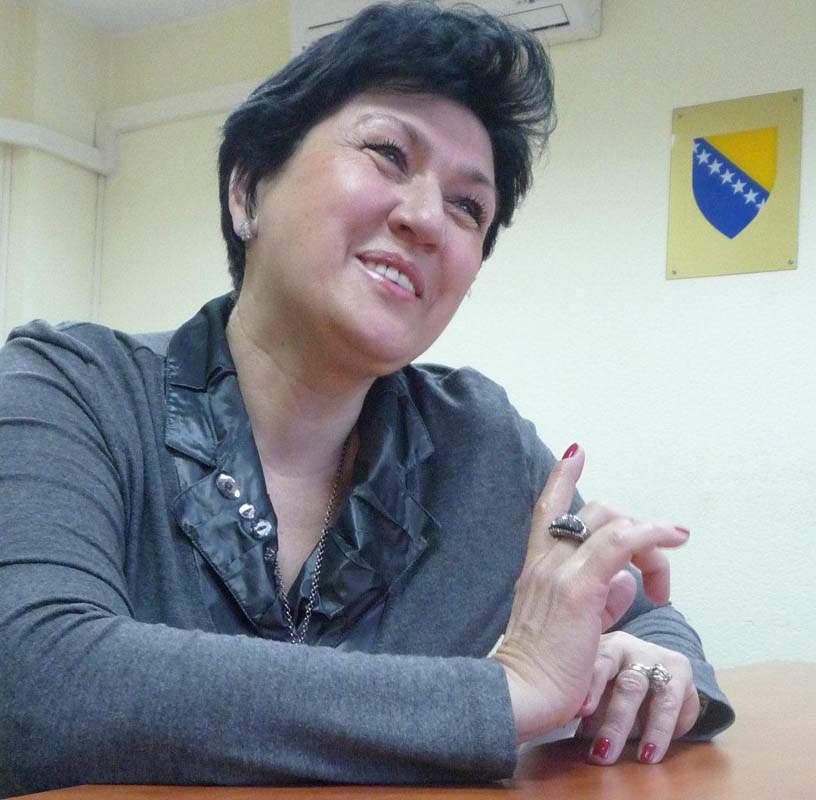
According to records collected from the ministries, Parliament and the Office of President, the advisory posts are often assigned to politicians who have lost an office or at the elections.
The former Prime Minister of FBiH Mustafa Mujezinović appointed the former Sarajevo Mayor Semiha Borovac as his advisor for economy, privatization, foreign investment and investment in March 2010. A lawyer by profession, Borovac remained for three months at this post, until she was appointed the state Coordinator for the Reform of Public Administration.
Borovac said that she advised Mujezinović how to meet the requirements of the International Monetary Fund on the decrease of veterans’ benefits.
In December 2010, her successor to the post of advisor was Sefer Halilović, a retired general. He became advisor following the end of his MP term at the BiH Parliamentary Assembly. He remained in this post until March 2011, when the new government was appointed.
Enes Ganić, former director of the FBiH Privatization Agency, said that the Mujezinović government did not have a strategic approach to privatization and that its advisors were of no use to the agency.
Family Circles
Relatives of officeholders and politicians are often made advisors.
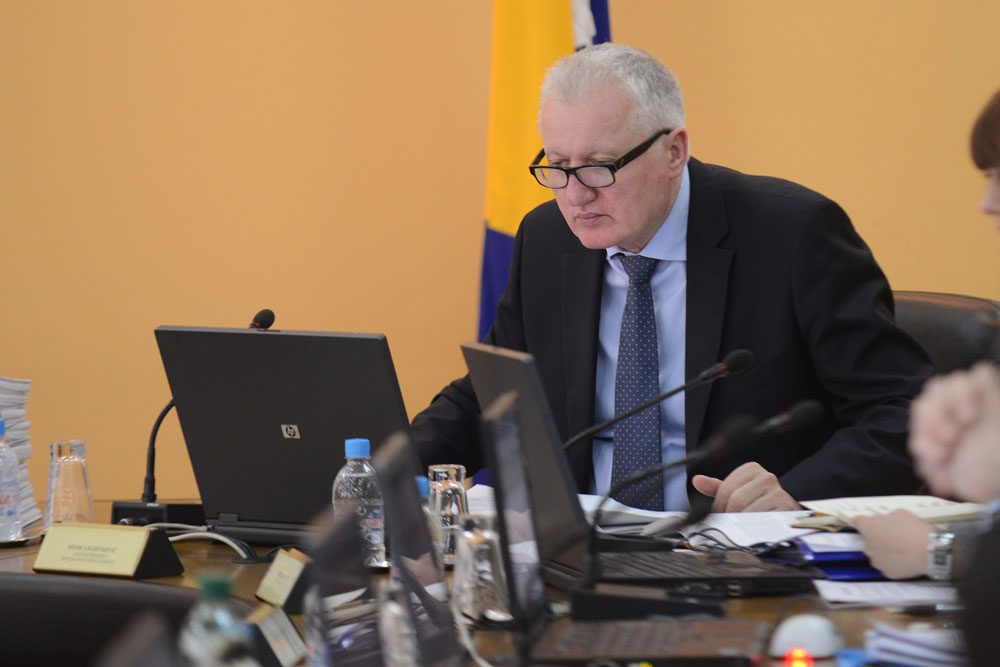
In 2007, Bogoljub Radivojević became an advisor for public relations and protocol to Salko Obhođaš, the minister of Spatial Planning of FBiH. At the time Bogoljub’s father Desnica Radivojević, was a member Party of Democratic Action (SDA), to which Obhođaš belongs.
“Someone said that Desnica had a son, that he was here in Sarajevo. I don’t remember what he graduated in”, recalls Obhođaš, who is now a director of the FBiH Protection Fund. “I think I said I needed someone who would do press releases for me.”
After Desnica Radivojević succeeded Obhođaš at the office of the Minister of Spatial Planning in 2011, Bogoljub moved to the Office of the FBiH Deputy Prime Minister Jerko Ivanković Lijanović as an advisor for strategic planning and labor advancement.
Muamera Numić is a daughter of Timur Numić, a high-ranking member of SDA and advisor to the deputy FBiH Prime Minister Radivojević, who broke away from SDA last year.
Numić, a linguist graduate from the Sarajevo School of Philosophy advised the former chairman of the Council of Ministers Adnan Terzić on international cooperation, and later the former minister of Defense Selmo Cikotić on NATO.
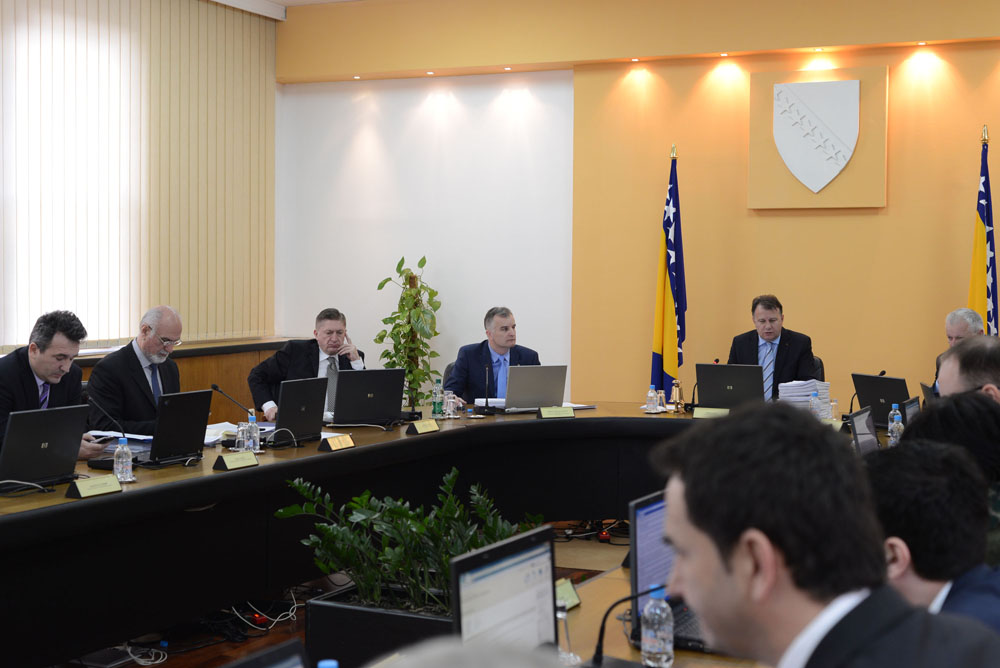
Numić said that her father arranged her job interview with Terzić, while the SDA party helped her with a job for Cikotić.
Cikotić arranged the job interview with Numić at the Home of Armed Forces.
“I told him that NATO was not my specialty”, said Numić, but Cikotić heartened her by saying that she was going to be useful to him because of her exceptional contacts and long-term collaboration with the American ambassador who was the main proponent of the defense reform.
Numić said that Cikotić told her that “she would get the hang of NATO” if she were a smart as he had heard.
Today Numić is the senior civil servant at the post of the secretary of the Joint Commission for Oversight of BiH Intelligence and Security Agency.








